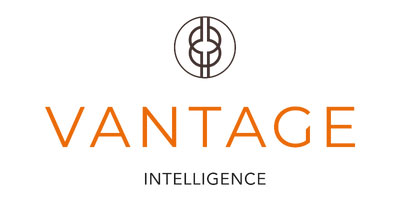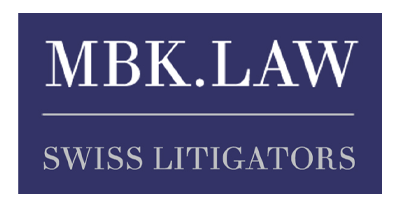Knowledge Hub
Join the Conversation!
Impartial and independent, ThoughtLeaders4 FIRE Knowledge Hub hosts cutting edge industry content and insight.
Email maddi@thoughtleaders4.com to submit content.
Disclosure in Financial Remedy Proceedings: no Longer a “Cheater’s Charter”?
Date: 29/01/2020 Type: Articles Topic: International | Enforcement | Finances |Recent developments and guidance on Imerman and UL v BK
Summary
The Family Court has demonstrated a willingness to assist a party to enforce a financial remedy order by allowing use of confidential documents where there is evidence of deliberate attempts by the respondent to frustrate English court’s orders, and where there is no evidence that the applicant acted unlawfully in accessing confidential materials.
The case also supplements Mr Justice Mostyn’s practical guidance in UL v BK (Freezing Orders: Safeguards) [2014] Fam 35 on how to manage Imerman issues, particularly as to when the need for further intervention of the court may be necessary.
The legal principles
The modern principles governing illegitimately obtained documents in family proceedings are set out in the decision of the Court of Appeal in Tchenguiz v Imerman [2011] Fam. 116. In this decision - often since referred to as a ‘cheater’s charter’ - the court found that:
- it would be a breach of confidence to allow a party to rely on illegitimately obtained documents; and
- there is no principle (previously referred to as the ‘Hildebrand rules’) of self-help by obtaining information which might otherwise be concealed or destroyed.
The court in Imerman paved the way for exceptions to the rule, recognising that a claim for breach of confidentiality could potentially be defeated by showing that the documents revealed unlawful conduct or intended unlawful conduct by the respondent. This was obiter, as the court decided that Imerman was not such a case (it was “not suggested that the documents themselves disclose measures taken to defeat the wife’s claim”).
However, in November 2019 the High Court did identify such a case in Akhmedova v Akhmedov [2019] EWHC 3140 (Fam), and has confirmed the position.
Ms Akhmedova and her solicitors, who were seeking to enforce a December 2016 financial order made in Ms Akhmedova’s favour, were allowed to retain and use the documents in question on the basis that the documents were part of a ‘fraudulent scheme’ and did not attract confidentiality (or that no discretionary relief should be granted to protect any confidentiality) and that although the majority were prima facie privileged, the ‘fraud’ exception to privilege applied.
Relevant factual considerations
In Imerman, in the course of the divorce proceedings the wife’s brother had obtained confidential documents by accessing the husband’s computer without permission and copying them.
In Akhmedova, the matter was post-judgment. In 2016 Haddon-Cave J (as he then was) had ordered the husband to pay the wife the sum of £453,576,152 in settlement of her financial claims in respect of the marriage. Although three years had elapsed, the husband had not voluntarily paid a penny of that award and almost the entirety remained outstanding.
The relevant documents in Akhmedova were provided to the wife in 2017 by a former employee of the husband’s family office. In the course of his employment, the employee had received financial information relating to the husband and his companies and legal advice (principally from the husband’s English solicitors). The employee had been dismissed in 2015.
The court in Akhmedova followed the approach set out in Imerman, seeking to strike a fair balance between two competing concerns, namely:
- that a party should not obtain an improper benefit of being able to use the other’s confidential documents which have been unlawfully obtained; and
- that a party should not dispose of or hide documents which they are (or may become) obliged to produce, and that a party should find it more difficult to hide his assets.
In its balancing act, the court in Akhmedova took into account the following:
- that the applicant did not unlawfully access her husband’s confidential materials or procure another to do so; and
- that at the relevant time the husband was in contempt of the English court’s orders, and had been found to have engaged in a campaign to evade and frustrate enforcement of the judgment debt against him and had disengaged with the proceedings with the consequence that he could not be expected to give any or any proper disclosure himself.
Additional procedural guidance
Mr Justice Mostyn’s guidance in UL v BK requires solicitors who receive such documents to return the documents to the other party’s solicitors, who (as officers of the court) can then ensure they are preserved and that proper disclosure is given.
If the other party does not have solicitors acting for them, the UL v BK guidance requires a party to obtain directions from the court, and that such directions are likely be to the effect that the applicant shall pay for an independent lawyer to determine which of those documents are admissible and relevant to their claim. Copies can then be provided to the applicant’s solicitor before the files of documents are returned to the other party.
Where questions or disputes arise over the independent review
What the UL v BK guidance does not address is the proper course is for the applicant’s solicitors if the independent review identifies the need for guidance on the documents, or if there is a dispute between the applicant’s lawyers and the independent reviewer about the outcome of the review.
As such, Mrs Justice Knowles supplemented the current UL v BK guidance as follows:
- an application to the court for directions must be made in such circumstances, and it should be made as soon as practicable after the documents are received;
- if the court makes an order for a review of the documents by an independent lawyer, it would usually be appropriate for the order to permit the owner of the documents to make written representations to the independent lawyer that the material is subject to legal professional privilege;
- the independent lawyer should produce a report which should be provided to both the owner and the recipient of the documents, and also to the court in an event of any disagreement;
- if there is a disagreement about the outcome of the independent lawyer’s review, the recipient’s solicitors should refer the matter to the court for determination;
- if the independent lawyer considers the assistance of the court is required, the recipient’s solicitors should refer the matter to court for directions and the independent lawyer should provide a report explaining the basis of the referral; and
- independent lawyers conducting such reviews should err on the side of caution by excluding potentially privileged documents from disclosure to the recipient where there is an ambiguity as to their (iniquitous) nature.
(PCB Litigation LLP act for Ms Akhmedova).
Authors: Anthony Riem (Partner), Rachel Turner (Senior Associate), and Caitlin Foster (Trainee)
Author
Anthony Riem, Rachel Turner & Caitlin Foster - PCB Litigation
Our FIRE Corporate Partners

































